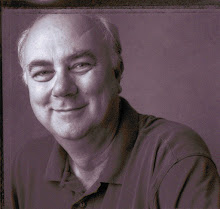Vince Staten
One Stop Shopping for Everything Kingsport
Thursday, January 27, 2011
Monday, January 24, 2011
Eddie Roberts 1946-2011 RIP


Eddie fighting ninth ranked middleweight Willie Taylor at Civic Auditorium in 1979.
Eddie died over the weekend when he was hit by a car in Surgoinsville. I wrote a column about his inspirational life in 2006 on the occasion of his 60th birthday party.
Eddie Roberts surveyed the crowd gathered in Club Room 1 at the Civic Auditorium last Friday night to help him celebrate his 60th birthday. There were his old buddies from the Robert E. Lee Apartments. There was his daughter and her family, his sisters, a brother-in-law, 70 people all total.
No, he said as he scanned the group, there was nobody in attendance that he had fought…in the ring. “There’s lots here that I fought in the back alley.”
Eddie Roberts was a fighter, both in the ring and out. He grew up on the mean streets and back alleys around the Robert E. Lee Apartments, where fighting came naturally. So naturally that he turned it into a hobby - three times he won the Southern Golden Gloves championship - and then a profession - he fought 20 professional bouts, including his most famous fight, across the hall in the Civic Auditorium’s main auditorium. That was in 1979 when he dueled the ninth-ranked middleweight in the world, Willie Taylor, for twelve rounds, losing on points in a hard-fought match. Eddie had a career professional record of 14-5 with one draw, all his fights against legitimate opponents, no “tomato cans.” “I didn’t pad my record.”
He came out of retirement at age 39 - “I said I was 39; I was really 48” - to knock out a fighter half his age before retiring again.
But the toughest fight of his life may have been fighting his way out of public housing.
And that’s why these friends and family were gathered around pots of soup beans and plates of cornbread. To celebrate a life well lived.
After watching a video about Eddie, one by one his old friends stood up to toast him.
Earl Carter jokingly took credit for launching Eddie’s boxing career. “I was one of his early victories.”
Bill Hargrove talked about their shared tough childhoods. “Growing up in Lee Apartments we didn’t have much. But we had heroes. When he started boxing, half us in Lee Apartments wanted to box to be like Eddie.”
Earl seconded that idea of the family of Lee Apartments. “We had a bond you can’t understand unless you lived there. We went out in the world and when anyone succeeded, we all swelled up with pride.”
In turn the other middle-aged men stood and talked about Eddie the role model: older brother to every fatherless kid in Lee Apartments, then Eddie the boxer, the college graduate, the teacher, the coach, the Boys Club volunteer.
Eddie put himself through college then taught at Church Hill High School and Cedar Grove Elementary, working with boys from circumstances much like his own. “Eddie’s the one who taught me to give back,” said Wayne Taylor, who volunteered at Boys Club with Eddie. Wayne wanted the crowd to know something else about Eddie. “Something that hasn’t been discussed, Eddie’s other side. Eddie is a poet, a songwriter, a Civil War buff, a guitar teacher; he’s just a universal man. He went back at 50 and got his Masters. I remember he said Grandma Moses didn’t start painting till she was 80.”
Eddie took no credit himself, instead crediting his family and friends and his late trainer Jackie Wilson, a one-time athlete at Ketron High School, who trained out of a wheel chair after a car accident left him crippled.
Eddie didn’t express bitterness about the Willie Taylor fight, which many in attendance thought should have gone to Eddie. A win over a ranked contender would have put Eddie on the map in the middleweight division. And he almost won with a crunching body shot - Eddie calls it the hardest punch he ever threw - that lifted Taylor on his toes and sent him reeling. “But the ropes caught him.” One judge scored the bout for Eddie, but the other two voted for Taylor. Eddie says modestly, “It wasn’t to be.”
The keynote of the 60th birthday celebration was a letter that daughter Carol Roller wrote and read. She spoke about Eddie not as a boxer but as a father, a dad who taught her the lesson he had learned on the mean streets and in the ring.
“He taught me that we all get knocked down but we get back up.”



